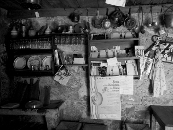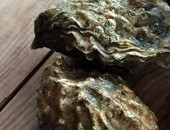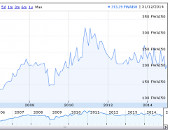by Claire Foster-Gilbert
Biodynamic viticulture grew out of the movement which was first propounded by Rudolf Steiner in his eight lectures entitled “An Agricultural Course” given in 1924. His theory stemmed from his philosophy of anthroposophy. However, does biodynamics require one to actually adhere to the tenets of inner development as postulated by Steiner or can one be a good practioner without any real belief in its foundation? Dr Manfred Klett is a founder of a biodynamic farming community in Germany; he is the former director of the Department of Agriculture at the Goetheanum in Switzerland and has more than forty years' experience in biodynamic agriculture. In his book on biodynamic preparations he writes: "you have to study anthroposophy as a whole in order to understand what we need to do in biodynamic farming." Questioned about this need for an underlying belief he retorts: "of course, there's no doubt about it, that is obvious! But we can't possibly expect it from everybody! If one starts to read the Agricultral Course one becomes enthused and this is the first step to understanding. There is a trust and confidence which contributes to its value, because from a scientific point of view it seems to be ridiculous. After a while you realise there are some positive results which you will see and this is a stage to an inner relationship with what you are doing... to understand what you do is a matter of modern consciousness and it is not about doing something merely out of a belief or because 'it works'. You have to seek an approach. We are very far off from penetrating with our whole consciousness and recognition 'what it's all about'. On this basis one can say, for example, that biodynamic preparations work because if you have come to the point of using them (most people refuse to) then this is already the first step to a positive more spiritual relationship with the world in which we live."
Some would argue that viticulture practiced along biodynamic lines is simply an approach to growing that makes sense - increasing sense - scientifically and economically. The approach recognises what sound biologists such as E. O. Wilson would find uncontroversial, that every nanometre of earth is teeming with life, and life itself depends upon the interplay of ecosystems and the dynamic continuance of millions of different species. It is unscientific and unintelligent to treat the land and its produce as if they were hermetically sealable and controllable; that they would go on responding to artificially forced growing methods ad infinitum. It is much more intelligent to understand the land and work with its intrinsic nature. Not just the land, but the seasons, the phases of the moon, gravity, and so on. Wine made in this fashion is thought by a significant and growing number to be superior. In other words, biodynamic viticulture is worth practicing because it makes prudent sense, not because it is morally or spiritually right.
But - and here’s a question for the existentialists among you - if you are practicing the principles of biodynamics and you don’t believe in the philosophy that supports it, can what you are doing really be called biodynamics? If you are not an anthroposophist, that is to say, someone who believes that there is a spiritual realm beyond the physical world to which developed human beings have access, is your wine truly biodynamic?
Is champagne champagne, or is it something else, when it is not grown and made in Champagne, even if in every other respect it is the product of identical methods of champagne-making?
What did Woody Allen mean when he declared: “God does not exist, and we are His Chosen People”?
Did the tree that fell without witnesses in the forest make a sound, even though nobody heard it?
And what of the Christian missionary who kept an aboriginal totem pole outside his hut, because he had been told it would protect him even if he didn’t believe it?
Demeter International, thought to be the strictest certifier of biodynamic produce, does not, one imagines, send its people to interrogate farmers and wine-makers about their core beliefs. The certification depends upon what the producer does, not what the producer thinks. And yet, Demeter itself says this about beginning the process towards successful certification:
The most important prerequisite for conversion is an active interest in the laws of nature and the will to work with them creatively in your daily activities. It is also important that you are open to a holistic view of the natural world, which goes beyond the knowledge gained purely from natural science.
Note the use of the word ‘conversion’. In this context one can understand it to mean ‘conversion of one’s land and production methods’. However it is the same word that is used for one who becomes a religious adherent. The word is a translation from the Greek ‘metanoia’, meaning ‘turning around’. Now, some Christians do not believe that you are truly Christian or can claim to hold Christian values unless you have explicitly, publicly, and as a competent adult, confessed your belief that Christ is your personal saviour, by which you understand that he has died for your sins in order to secure your personal salvation. As a converted Christian you will now practice the Christian virtues of love of God and neighbour, generosity, justice, and the rest. But these are secondary to the core and comfortable belief that you are saved. The rest follows, and in a sense needs no consideration. If I am saved, I will behave as Christ wishes me to behave. My eyes have been opened, now I see truthfully, and my behaviour will follow from my right perception.
Such people may be characterised as extremist Christians who believe they hold an exclusive right to the keys of heaven and the conferring of the title Christian. For them Christianity is a verb and a noun, not an adjective.
And it follows that they will believe that no matter how apparently Christianly a person might behave, if they have not this personal belief, then they are not Christian.
Calvin, one of the fathers of the Reformation in 16th century Europe, taught a puzzling version of this. He took literally the biblical statement that there would be 144,000 people in heaven. He also believed that those 144,000 were determined by the pre-ordained will of God. There was nothing you could do to secure your place in heaven: God had already decided. However, he observed, it was surely the case that those who were so elected by God would of course display all the Christian virtues. The effect of this was to make everyone behave like really good Christians, because they all hoped they were among the elect.
I don’t buy this. It seems to me that biodynamic principles of agriculture (well, many of them) are prudent and increasingly so as we understand better the interdependence of all species and matter, not just in the earth but beyond, in gravity, the stars, and so on. I don’t know how much of Steiner’s advice is right, but a lot of it makes sense. The product of such agricultural practice will (probably) not only taste better, but it will have done less damage whilst being created. Whether the producer believes in Steiner’s philosophy or not is surely irrelevant.
Similarly, and I write as a moral theologian, I do not believe that the practice of Christian virtues depends upon prior belief in Christ as one’s personal saviour. I don’t even think it is necessary to believe that Christ existed to behave in a Christian manner (though that would be strange, since there is perfectly adequate and independent evidence that a wonder-worker called Yeshua did exist at the time the gospels suggest). One of the most Christian people I know is an atheist. He has given the coat off his back to a beggar without a second’s hesitation.
However, I cannot help but observe that those who profess a Christian faith are more likely to hold fast to Christian values and virtues, not because they are better people than those who are not, but because they have both a worldview to support their actions, and because they have motivation. And, because I’m not among those Christians who believe in the need for declarations of personal salvation, allow me to define ‘Christian faith’ more broadly as believing that God exists as the underlying truth of creation, that Christ was God incarnate, and that creation is sustained by God’s holy Spirit. (It is interesting to note, en passant, that 70% of UK citizens persist in defining themselves as Christian, when only 10% attend church.)
Similarly, the biodynamic viticulturist who actually understands and believes anthroposophy will have a worldview and a motivation to persevere with the inevitably more labour-intensive and costly production methods of this approach. I do think that the way one perceives the world determines how one behaves towards it. And if personal belief and motivation have no relevance, how do we account for the placebo effect, for the power of positive thinking which some call prayer, for the profound effect of our emotions on what happens in our lives? How come whoever it was who wrote ‘The Secret’ made so much money? How come Steiner, and the numerous similar movements that were spawned in the 20th century, commanded such a following?
For the first time in my life I have given up alcohol for Lent. I have never, since I began drinking, abstained for such a prolonged period. There is no way on earth I would be able to maintain this discipline were it not allied to an ancient Christian practice of self-denial shared by millions across the ages, for the purpose of becoming more deeply conscious of God and the needs of my fellow humans.
And by heavens I am looking forward to that first sip of champagne as night falls and the first stars appear on Easter Saturday, sign of the Resurrection.










